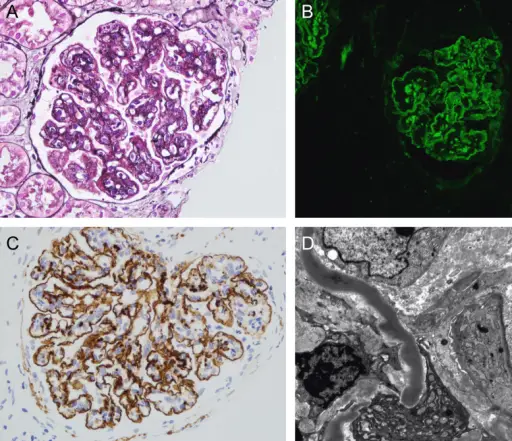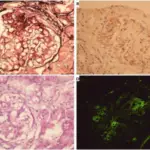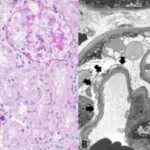Dense deposit disease is an infrequent autoimmune condition that affecting the kidneys
What is the Pathology of Dense Deposit Disease?
The pathology of dense deposit disease is:
-Etiology: The cause of dense deposit disease is genetic and non-genetic factors
-Genes involved: Unknown.
-Pathogenesis: The sequence of events that lead to dense deposit disease is less clear, abnormality in excessive complement activation and complement regulatory protein factor H gene mutations.
-Morphology: The morphology associated with dense deposit disease shows large glomeruli, with an accentuated lobular appearance.
-Histology: The histology associated with dense deposit disease shows proliferation of mesangial and endothelial cells and infiltrating leukocytes.
How does Dense Deposit Disease Present?
Patients with dense deposit disease typically have no gender preference present at the age range of 5 to 15 years. The symptoms, features, and clinical findings associated with dense deposit disease include proteinuria, reduced amounts of urine, hematuria, blood pressure and swelling.
How is Dense Deposit Disease Diagnosed?
Dense deposit disease is diagnosed by kidney biopsy.
How is Dense Deposit Disease Treated?
Dense deposit disease is treated through symptomatic management, aggressive blood pressure control, angiotensin-converting enzyme (ACE) inhibitors and angiotensin II type-1 receptor blockers therapy, peritoneal dialysis or hemodialysis and kidney transport.
What is the Prognosis of Dense Deposit Disease?
The prognosis of dense deposit disease is fair.



